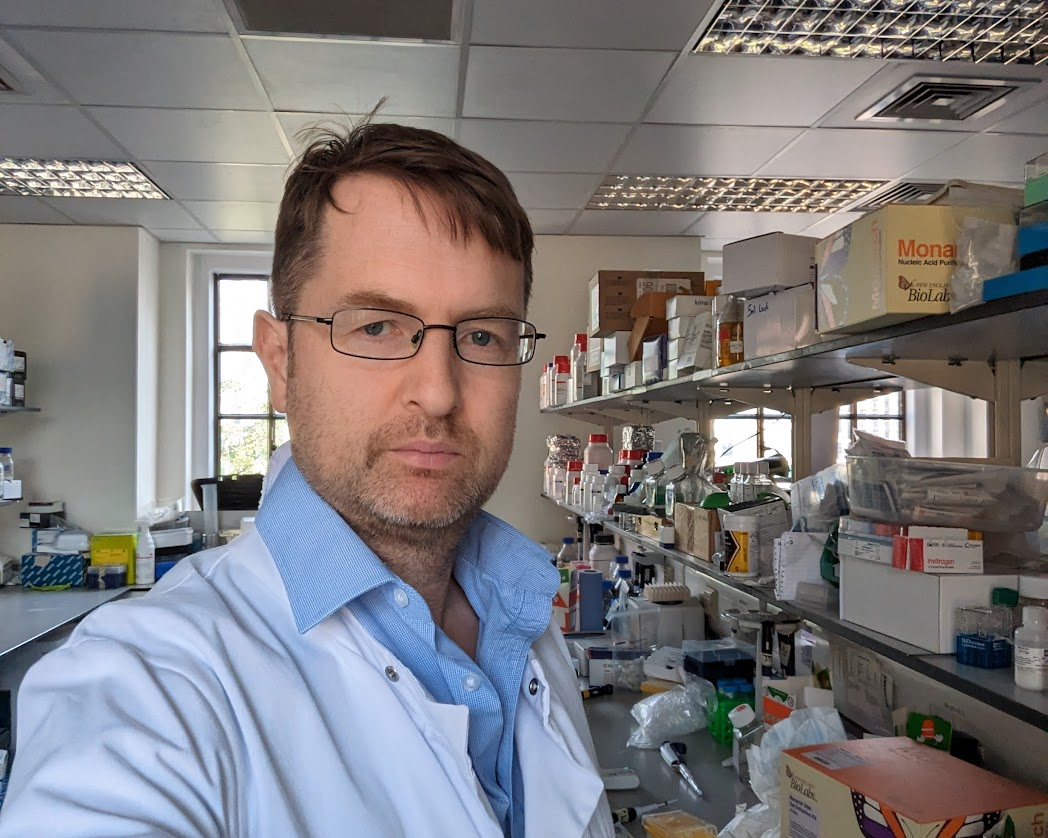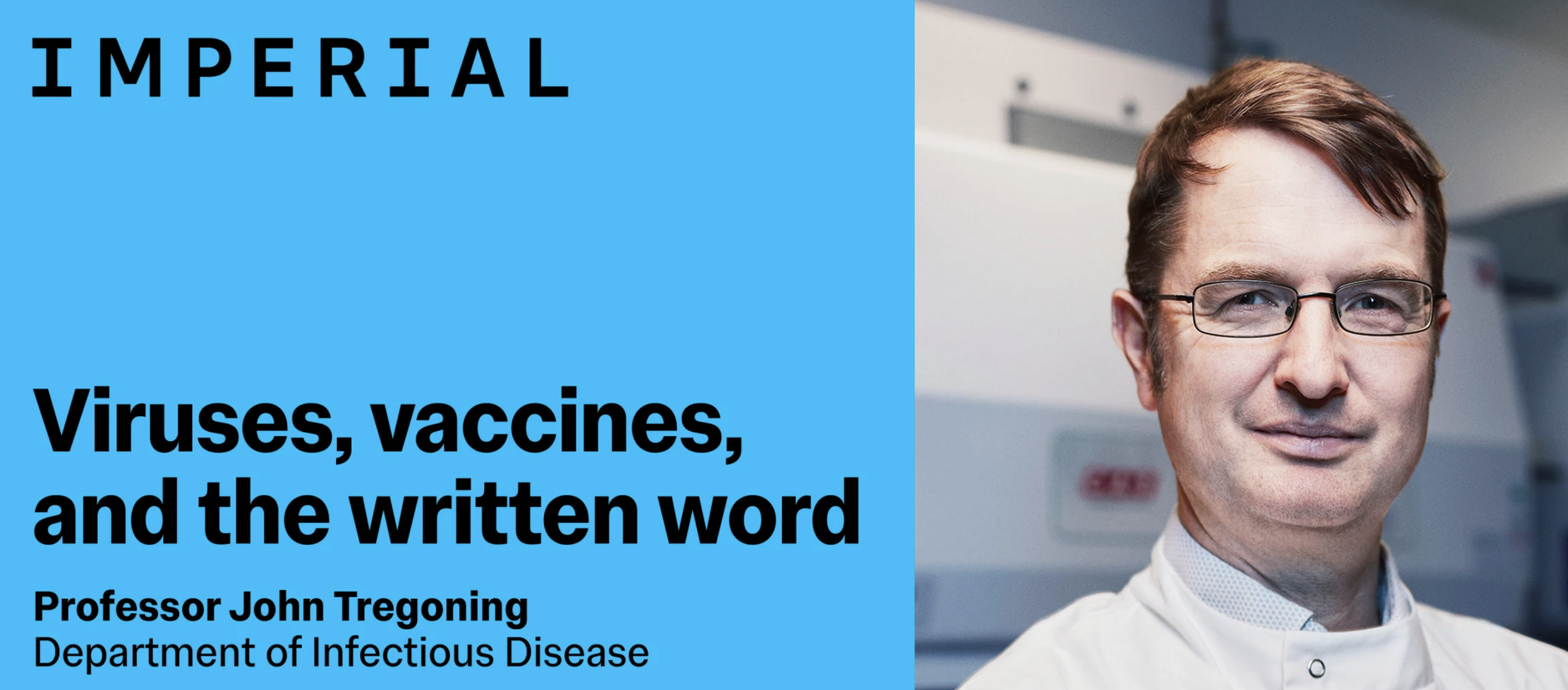 How does a scientist’s journey shape their groundbreaking work? Prof John Tregoning from the Department of Infectious Disease shares insights on his inaugural lecture, “Viruses, Vaccines, and the Written Word,” discussing his career, scientific contributions, and the vital role of collaboration in advancing science.
How does a scientist’s journey shape their groundbreaking work? Prof John Tregoning from the Department of Infectious Disease shares insights on his inaugural lecture, “Viruses, Vaccines, and the Written Word,” discussing his career, scientific contributions, and the vital role of collaboration in advancing science.
One of the milestones of academic life is the inaugural lecture. The origins of this are lost in the mists of time, specifically the mid-1950s at Imperial. It is apparently an opportunity for a new Professor to profess their expertise in an area of science. How this differs from lecturing as a lecturer is a bit unclear; I must admit, I am a bit sad there was no reading test on promotion to reader, I’d have aced that.
One of the key tenets of the inaugural is that it is open to all, providing an opportunity to engage with a wider audience. To support me, Imperial has provided me with seven key facts about inaugural lectures, including the most terror-inducing one: the most viewed lecture has been watched 1.5 million times.
Taking this all in my stride, on 28 May 2025, I am giving my inaugural lecture entitled: ‘Viruses, Vaccines, and the Written Word’. From this title, you should get the impression of the things I work on and what I am going to talk about. There is no specific brief as to what you should lecture on, but I have a few set goals: profess knowledge to the public and smash 1.5 million views on YouTube (two of these are realistic).
Another feature of the inaugural is that it is a chance to discuss your career journey. This is an aspect of the brief I have very much leaned into. So much so that the sheer weight of photos caused the presentation to crash itself beyond repair the first time I wrote it.
In the end, I split my talk into 3 parts: how I got here, a snippet of the science I have done, and reflections on a career in science. One thread that runs through the entire lecture is the enormous debt of gratitude I owe to so many people – colleagues, friends, my team and my family. However, it is more than just an Oscar acceptance speech;for me, people are the beginning, middle and end of a science career. Yes, we get to do cool stuff and unpick how the world around us (or, in my case, inside us) works, but it is only possible as a communal effort. The people who trained us, the people who generated the ideas that we build upon, the people who do the actual work, the people who keep us safe, paid, and fed.
I’ll not dwell on my science here – for that, you will need to watch the talk. Be warned, a fondness for the immune system and especially T cells will probably help. But for the immune naïve – you will have an opportunity to assess whether I can indeed profess my knowledge of this somewhat complicated field to those outside of it. As can be indicated by the title, I do also talk a bit about writing – did I mention I’ve written not one but two popular science books (‘Popular’ here refers to the genre rather than a quality statement—I personally describe them as extremely popular).
I conclude with the lessons I have taken away from 25 years in science, which I cleverly call these ‘John’s 6 Career C’s’ They are: be Curious, Collaborative, Creative, Communicative, Collegiate and Comedic -I’ll admit ‘Comedic’ was a bit of a stretch). These, for me, are what makes for a great academic career – curiosity to ask the questions, creativity to think of ways to answer them, collaboration to actually answer them, communication to share the findings with others, collegiality to make it a better place for everyone, and comedy because if you aren’t having fun, then what is the point of it all? Yes, I could spend an hour explaining how T cells recognise viral infections and how vaccines help to improve that, but I think I would much rather encourage more people to pursue science – it may not always involve black holes and revelations, but it is an awful lot of fun if done right.
